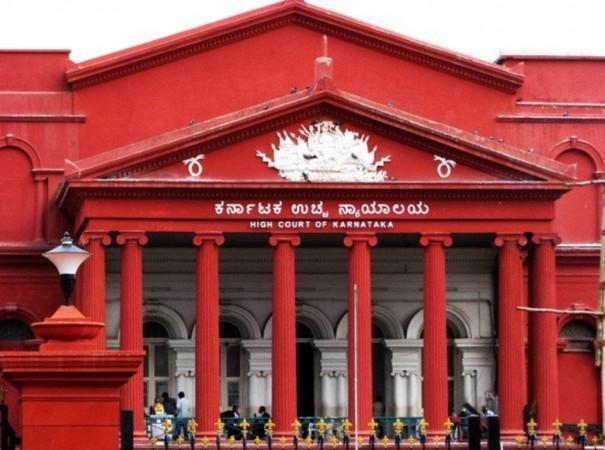The Karnataka High Court bench, hearing petitions on hijab row, on Friday directed the state government to see to it that its interim order is not violated.
The bench, headed by Chief Justice Ritu Raj Awasthi, gave this direction after an advocate for students brought to the notice of the bench that Muslims are being troubled over the interim order.

Advocate Tahir submitted before the court to provide clarity on the interim order prohibiting any religious symbols in the premises of colleges, contending that the order is also being implemented in Urdu schools, where all students and teachers are Muslims.
He further stated that students are being asked to remove hijabs and burqas outside such colleges and schools, following orders of the Minority Welfare Department. Teachers wearing hijab are also being stopped by officials saying that they are carrying out the interim orders of the High Court. All departments are passing orders in this regard, he said.

The bench, which also comprises Justice Krishna S. Dixit and Justice Khaji Jaibunnesa Mohiyuddin, asked the advocate to give a written submission on the matter and directed the government to see to it that interim orders are not violated.
Advocate General Prabhuling Navadagi, representing the government assured the court that it will be seen to it that not an iota of the interim order is violated.
Meanwhile, Navadagi, while countering arguments of counsels for the petitioners who vehemently argued that the government has no right to indulge into the religious matter, argued that under Article 25 (1), the state has powers to restrict religious matters.
During Covid crisis, the government has ordered closure of the temples, churches and mosques. And, it can't be said that wearing of hijab is absolute right, he said.
The bench questioned Navadagi about the sanctity of the College Development Committee (CDC), and also why the government referred to various judgments of the Supreme Court and High Courts while issuing the order on the matter.
"It appears that they (government) have not consulted you (AG Navadagi) while issuing the order," Chief Justice Awasthi remarked.
The bench also asked the AG whether the order issued by the government is premature.
"The government has issued order and they have constituted a high-level committee, which is waiting for the order of the court on the matter. The government order is issued in the name of the Secretary. Does this order has the consent of the Education Minister? This is not the order by one person," it observed.
"Without the consent of the government, the appointment of legislator to the committee is not possible. There are allegations on MLA. Is it right for the MLA to go inside academic institution... we are not asking about MLA of a particular party," the bench said.
Navadagi stated that practice of wearing of hijab is not an essential part of Islam, and that prevention of wearing of hijab does not amount to the violation of Article 19 (A). He submitted before the bench the sequence of events since 2014 to present which led to creation of hijab crisis in the state.
The bench then adjourned the matter to Monday, when the government counsel will continue his arguments.
Counsel for petitioners have so far argued for lifting of interim order prohibiting wearing of hijab and saffron shawls to classes. However, the bench has not acceded to the demand.














